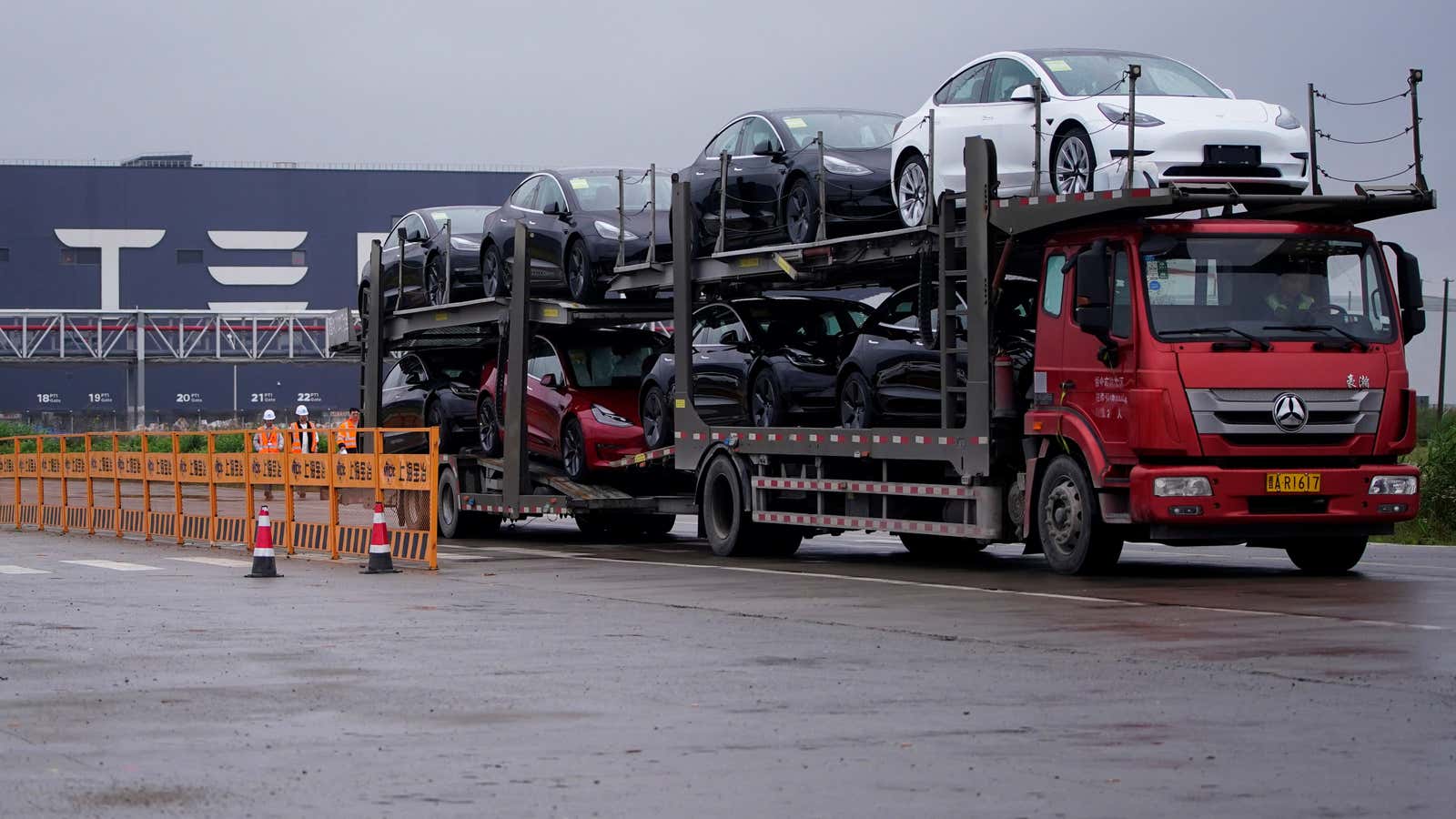The electric vehicle (EV) maker Tesla announced the opening of a new dealership in Urumqi, the capital of Xinjiang, China, just days before it reported record-breaking delivery numbers for 2021.
“In 2022, let us together launch Xinjiang on its electric journey!” Tesla wrote in a Dec. 31 post on the Chinese social media platform Weibo.
Tesla’s decision to open the new showroom comes as US companies face heightened scrutiny for doing business in Xinjiang, where government authorities have reportedly detained up to a million Uyghur Muslims as part of an assimilation campaign. The Chinese government is accused of a range of abuses toward Uyghurs and other ethnic minorities in the region, including mass surveillance, cultural and religious erasure, and forced labor, according to a Human Rights Watch report.
But China is also vital for Tesla as a major manufacturing hub and a huge domestic market that is propelling the company’s profitability. Tesla, long championed by China’s ruling party, has invested billions of dollars in China to ensure it has a place in the world’s largest car market where more than 14% of cars sold are electric. The opening of the Urumqi showroom shows the automaker may be willing to overlook egregious abuses to capture more domestic customers.
Xinjiang is becoming a liability for more US companies
US president Joe Biden put increased pressure on US firms last year to cut ties with Xinjiang over China’s alleged human rights abuses in the province, which is a major supplier of cotton and materials used to make solar panels. Previous reports drawing upon satellite imagery, personal testimonies, and official documents allege that Uyghurs and other ethnic minorities were forced (pdf) by Chinese authorities to perform labor at factories both within and outside of internment camps in the Xinjiang region. As of May 2020 it was estimated that Uyghurs were working in factories connected to at least 82 global brands’ supply chains, including Apple, Gap, and Nike, according to the Australian Strategic Policy Institute.
US government authorities issued an advisory (pdf) last July warning that businesses and individuals with supply chain and investment ties to Xinjiang “could run a high risk of violating U.S. law.” On Dec. 23 president Biden signed a law banning imports from the region.
In recent weeks US companies seeking to comply with international regulations on Xinjiang have faced criticism from China. The chipmaker Intel apologized to its “Chinese customers, partners and the public” last month after it told its suppliers in an annual letter that it was required to eliminate any goods or labor sourced from Xinjiang. Walmart was recently reprimanded by the Chinese Communist Party over allegations that the company pulled products sourced from the region at Sam’s Club, its warehouse stores.
Tesla hit a new delivery record with help from China
While Tesla risks international scrutiny with the Xinjiang showroom, the law passed last month targets goods exported from the region to the US. It is unlikely to change the way the automaker does business in the growing Chinese market, at least for now.
The company reported today (Jan. 3) it delivered over 936,000 vehicles in 2021, an 87% increase from the year prior. Analysts with Credit Suisse estimated in a Dec. 23 note that about 80% of Tesla’s volume growth in 2021 came from its Shanghai factory, which surpassed the EV maker’s Fremont, California facility in vehicle output last October.
And China is no longer just valuable as a production center for Tesla: Its customers are increasingly helping boost sales for the automaker, too. In the third quarter of last year, Tesla reported sales of $3.11 billion, roughly half of US sales during that period. In 2018, Tesla’s sales in China were equivalent to just 10% of US sales.
Tesla did not immediately respond to a request for comment on the opening of the Xinjiang dealership.
